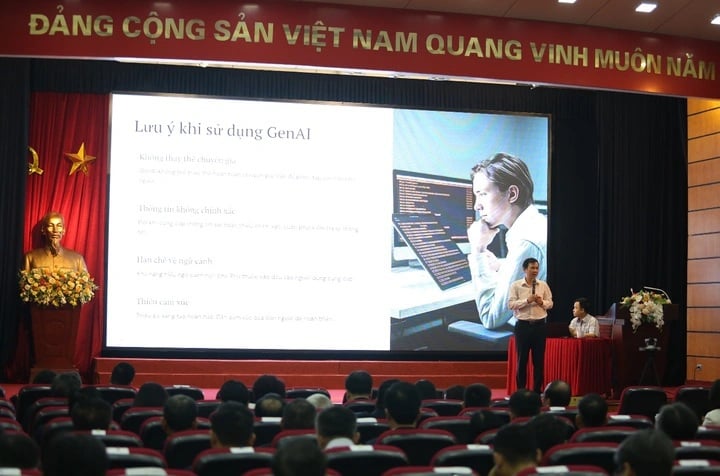
Deputy Minister Bui The Duy shared at the training class on Generative AI technology for leaders and managers at the Department level and equivalent of the Ministry of Science and Technology .
Essential needs and political -legal basis
As the world enters the digital age, artificial intelligence (AI) is becoming a core driving force for productivity, innovation and national competitiveness. For Vietnam, the promulgation of the Law on Artificial Intelligence is not only an objective requirement for development, but also a strategic step to realize the Party and State's policy on developing core technology, towards technological autonomy and deep international integration.
In terms of political foundation, this policy is clearly affirmed in the Resolution of the 13th National Party Congress, when emphasizing the task of "continuing to strongly innovate thinking, building and synchronously perfecting sustainable development institutions... unleashing all potentials and resources, creating new momentum for the country's rapid and sustainable development". In which, institutions are identified as not only a tool of adjustment but also a strategic lever to create the future.
In particular, Resolution No. 57-NQ/TW dated December 22, 2024 of the Politburo on breakthroughs in science, technology, innovation and national digital transformation has identified: "Institutions, human resources, infrastructure, data and strategic technology are key contents, in which institutions must be one step ahead." This demonstrates a new legislative mindset, considering institutional improvement not only an administrative task but also a foundation for creating national competitive advantages.
According to the Conclusion Notice No. 39-TB/TGV dated August 9, 2025 of the Working Group assisting the Central Steering Committee on Science, Technology, Innovation and Digital Transformation, the Ministry of Science and Technology is assigned to preside over the development and submission to the National Assembly of the Law on Artificial Intelligence in 2025. This is a step to concretize the Central direction, demonstrating a strong political commitment to creating a legal environment for the AI field.
Previously, Resolution 71/NQ-CP dated April 1, 2025 of the Government also reaffirmed the central role of institutions in innovation, requiring "urgent and drastic improvement of institutions; turning institutions into a competitive advantage in science and technology development, innovation and digital transformation".
At the strategic level, Decision No. 127/QD-TTg of 2021 of the Prime Minister promulgating the National Strategy on research, development and application of artificial intelligence to 2030 has laid the foundation for the formation of a testing institutional framework (sandbox) and perfecting policies to attract investment in this field.
Thus, the Law on Artificial Intelligence is not a single bill, but a logical continuation of the process of institutionalizing the consistent policy of the Party and State - to turn Vietnam into a country with the capacity to be self-reliant in technology, ready for the era of artificial intelligence.
Practical basis and global trends in AI legalization
In Vietnam, the Law on Digital Technology Industry, promulgated by the National Assembly on June 14, 2025, has a separate chapter on artificial intelligence, marking an important first step in establishing a legal framework to regulate this field. However, current regulations are only at the principle level, not enough to create a comprehensive, synchronous and open legal corridor for AI research, development and application activities.
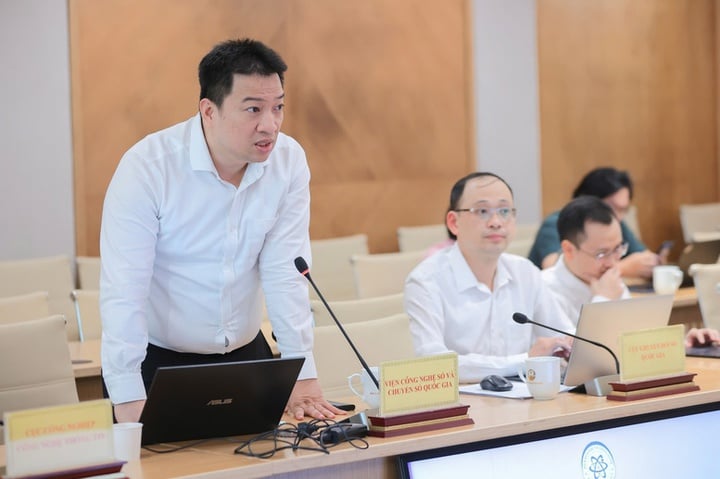
Mr. Ho Duc Thang, Director of the National Institute of Digital Technology and Digital Transformation, shared about the content of bringing AI into schools at the regular press conference in September 2025 of the Ministry of Science and Technology.
Practice is posing a series of issues that need to be legalized: Ethical risks, algorithmic bias, privacy violations, discrimination in AI applications. Lack of mechanisms to classify and control risks of AI systems, especially high-risk AI. Lack of inspection, licensing, and monitoring processes for AI products; lack of mechanisms to share computing infrastructure and quality training data sets. There is no strong enough policy on developing AI human resources, encouraging startups and commercializing domestic products, leading to significant dependence on foreign technology.
These gaps not only hinder development but also pose risks to data security, technological sovereignty and social trust in AI applications.
Meanwhile, at the international level, the trend of legalizing AI is taking place strongly. The European Union (EU) is a pioneer with the Artificial Intelligence Act (AI Act), the world's first comprehensive law applying a risk-based approach. The AI Act sets out a unified legal framework for the development, deployment and use of AI, regulating prohibited conduct, transparency obligations, monitoring mechanisms and strict sanctions.
South Korea enacted the Basic Law on Artificial Intelligence Development and Trust Building, combining innovation promotion and ethical management.
Japan has an Act to promote research and application of AI technology, focusing on developing infrastructure, human resources and international cooperation.
Thailand is developing a Draft Law on Promoting and Supporting AI Innovation, focusing on the pillars of risk assessment, standardization, innovation support, and data security.
The United States has taken a more flexible approach, through Executive Order 14179 and government memoranda to encourage R&D investment and ensure effective AI governance.
China, with a state-led strategy, has issued a series of AI management documents, from algorithm control to regulations on generative AI, to ensure national security and data sovereignty.
These examples confirm that the development of an Artificial Intelligence Law is an inevitable global trend – not only to manage risks, but more importantly, to create a favorable legal corridor for innovation and sustainable development.
For Vietnam, the early promulgation of the AI Law will help narrow the legal gap with advanced countries, create a transparent environment, protect users and promote the innovation ecosystem. At the same time, this is also the basis for Vietnam to participate in shaping international standards on AI, thereby affirming its role and position in the global technology value chain.
Basic contents of the Draft Law on Artificial Intelligence
According to the Ministry of Science and Technology, the Law on Artificial Intelligence is designed in the direction of a "flexible framework", ensuring both long-term stability and rapid adaptation to the pace of technological development. The law consists of 7 chapters, comprehensively regulating issues from classification, risk management to infrastructure development, human resources and AI ethics.
The purpose of the Law is to protect the legitimate rights and interests of organizations and individuals; promote socio-economic development; ensure national defense and security and enhance national competitiveness.
The scope of regulation includes all activities of research, development, provision, deployment and use of AI systems that affect the market, security, order and interests of organizations and individuals in Vietnam.
The content of the draft Law has been publicly disclosed by the Ministry of Science and Technology for public comments on the Ministry's electronic information portal, aiming to mobilize the intelligence of the expert community, businesses and people in the process of completion.
The development of the Law on Artificial Intelligence marks an important shift in Vietnam’s legislative thinking – from management to creation and development leadership. This law is not only to control risks, but more importantly, to create an institutional foundation for an autonomous, creative and humane digital economy.
In the context of the global race for technology and data, Vietnam needs a legal tool that is strong and flexible enough to protect national interests and unleash the creative potential of Vietnamese people. When enacted, the Law on Artificial Intelligence will not only be a law about technology, but also a law about the future, paving the way for Vietnam to make a breakthrough in the era of artificial intelligence./.
Source: https://mst.gov.vn/luat-tri-tue-nhan-tao-buoc-di-chien-luoc-kien-tao-nen-tang-phap-ly-cho-thoi-dai-so-197251013160820507.htm



![[Photo] Ready for the 2025 Fall Fair](https://vphoto.vietnam.vn/thumb/1200x675/vietnam/resource/IMAGE/2025/10/14/1760456672454_ndo_br_chi-9796-jpg.webp)

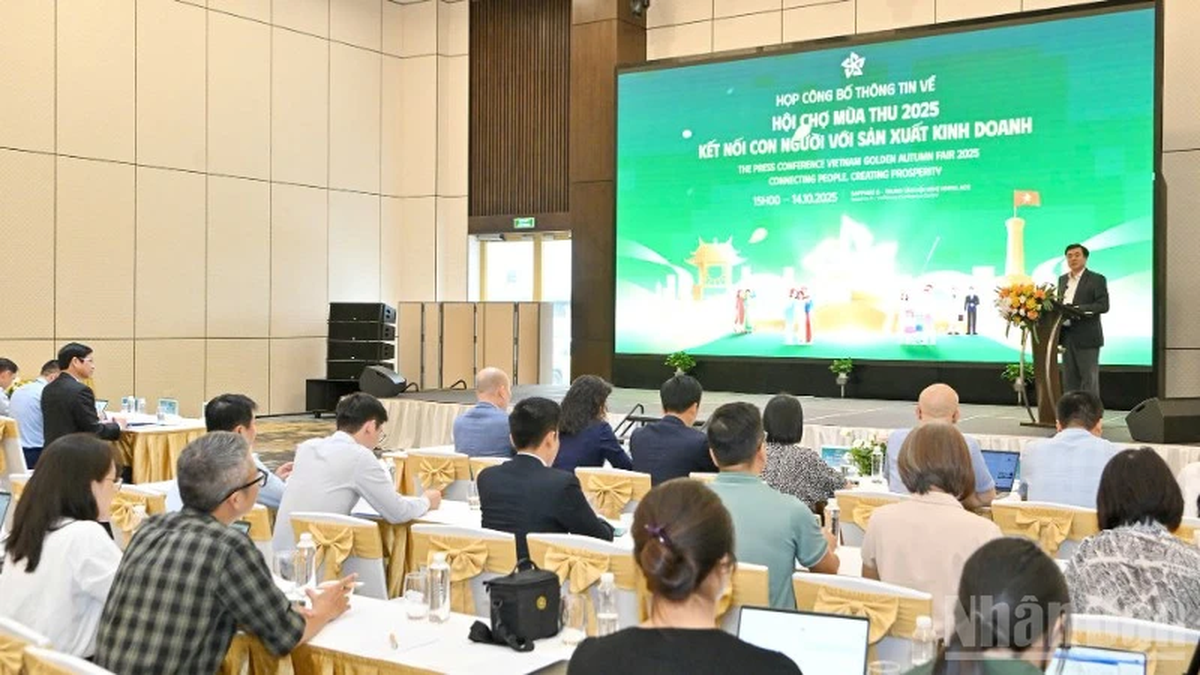




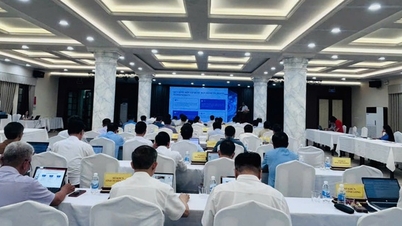



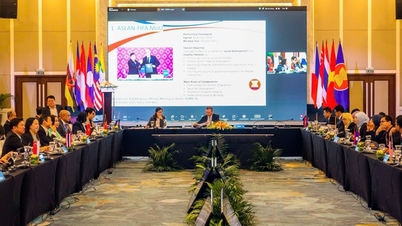
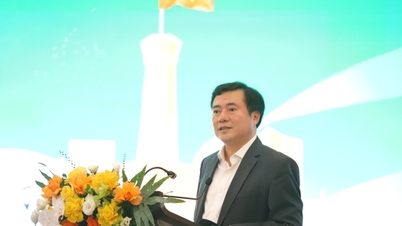




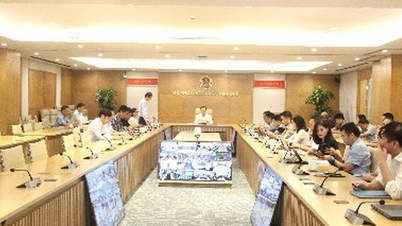
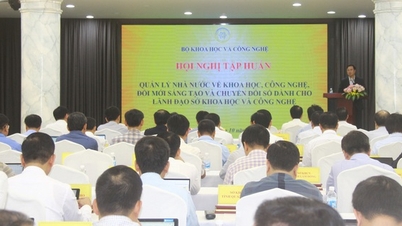






























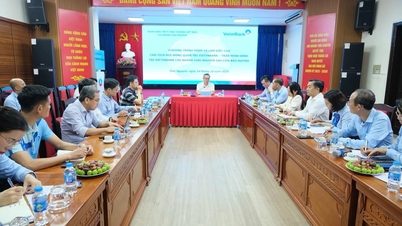



















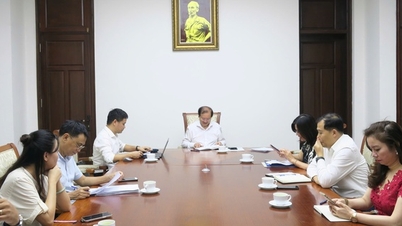
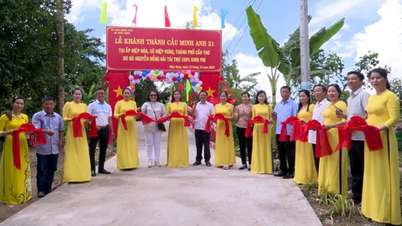

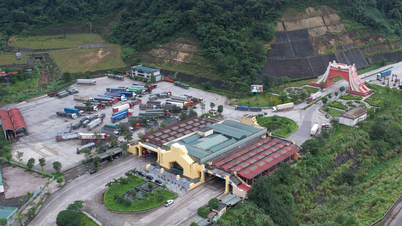




















Comment (0)